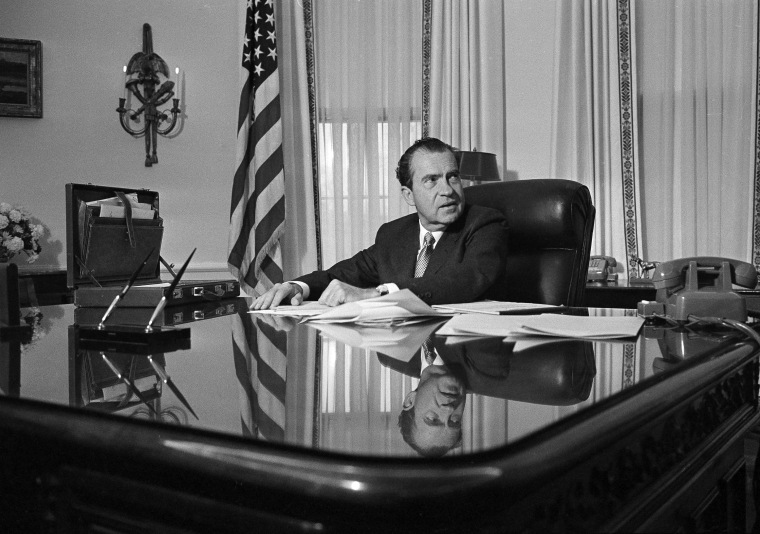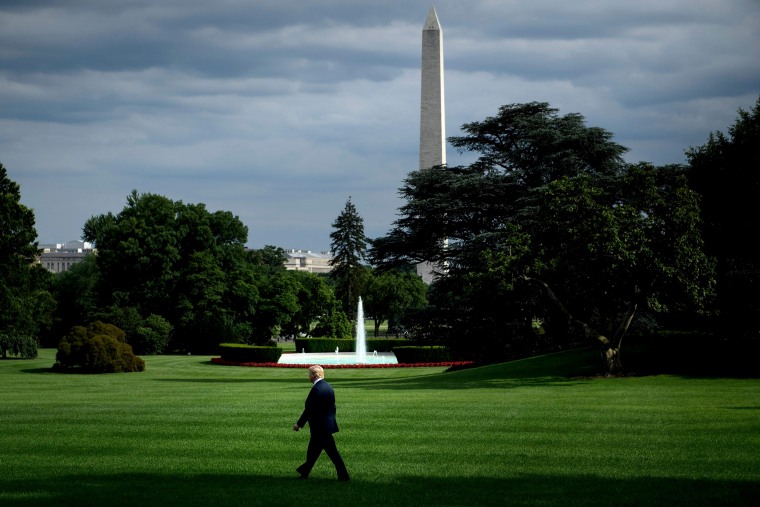WASHINGTON — House Democrats' quest to get the full monty of the Mueller report may come down to whether President Donald Trump waived executive privilege when he let aides turn over documents and talk to the special counsel's team.
On Wednesday, the president asserted privilege to shield the full, un-redacted report and related materials from a House Judiciary Committee subpoena, just as the panel was meeting to recommend that the House vote to hold Attorney General William Barr in contempt for refusing to provide them.
In that way, he made clear his position on whether he'd waived his privilege.
But veteran Washington lawyers say the whole fight could rest on whether the courts agree.
"I think a court will find the privilege is inapplicable given the waiver," said Stephen Truitt, who worked as a litigator in President Lyndon Johnson's Justice Department under then-Attorney General Ramsey Clark. "It's extraordinary that his lawyers did not make explicit to Mueller in a letter that a waiver was not intended if they had the slightest doubt about it."
Even that might not sway a court, said Truitt, a grandson of former Vice President Alben Barkley, but it would have at least sent a signal that Trump was trying to draw a line.
Elliot Berke, one of Washington's top Republican lawyers, framed it as a two-part test.
"The big questions for the courts to consider will be whether this was a proper assertion of executive privilege and, if so, was that privilege waived?" he said.
Generally speaking, executive privilege is a loosely defined power that allows the president and other executive branch officials to keep information — particularly regarding decision-making deliberations and national security matters — from Congress and the courts.
It does not appear in the Constitution but has been established and shaped by the judiciary over time.
The Supreme Court has ruled that the assertion of privilege creates a "presumption" of authority for the president to block Congress from gaining access to materials, meaning essentially that lawmakers would have to sue the administration to try to force their release. But that power is not absolute.
The House Judiciary Committee was prepared to recommend Wednesday that the full House find Attorney General William Barr in contempt — the step preceding a lawsuit. Democrats on the Judiciary Committee have argued that they need the full, unredacted Mueller report and underlying documents in order to make determinations on "whether to approve articles of impeachment" against Trump or other officials, "as well as consideration of other steps such as censure or issuing criminal, civil or administrative referrals."
That declaration of their intent could be important because in ruling against a Senate Select Committee's efforts to obtain President Richard Nixon's White House tapes in 1973, the D.C. Circuit Court of Appeals cited a valid ongoing House impeachment process, and the House's possession of the tapes, in finding that the Senate didn't need them for legislative purposes.
While the larger case involving the Nixon tapes is the benchmark battle involving executive privilege, it was mostly centered on whether the president's executive privilege claim could withstand a grand jury subpoena in a criminal case. Ultimately, the Supreme Court ruled 8-0 that Nixon had to turn over his once-secret White House recordings.

Nixon asserted privilege six times, according to the Congressional Research Service, or CRS, including three times with regard to the tapes. President Bill Clinton's numerous claims were difficult to track because they were not given in writing, according to the service, while President George W. Bush invoked privilege six times.
President Barack Obama famously withheld information from Congress in the "Fast and Furious" gun-trafficking investigation, prompting a Republican-led House to hold then-Attorney General Eric Holder in contempt. Years later, after a court battle, the documents were turned over.
In most instances of a clash between Congress and the White House, the two sides reach some sort of agreement that stops short of litigation, and Justice Department officials traded offers of accommodation with the House Judiciary Committee this week before Trump asserted what he described as "protective" privilege just before the panel met to issue its contempt recommendation Wednesday.
On occasion, the White House and Congress duke it out in court. And it's not clear which side — or which constitutional principles — will win out if they lawyer up.
The president's team has been quick to point to what's known as the "Espy" case, which involved former Agriculture Secretary Mike Espy and President Bill Clinton's efforts to shield documents from a grand jury looking into allegations of wrongdoing by Espy.
In that case, which Congress was not engaged in, an appellate court established a two-pronged approach to the executive privilege power, covering "communications" on one hand and "deliberative process" on the other, according to CRS. The bar for compelling the release of presidential communications, including those of White House staff who advise the president — like the White House counsel — was set much higher than that for the "deliberative process" of the executive branch.

